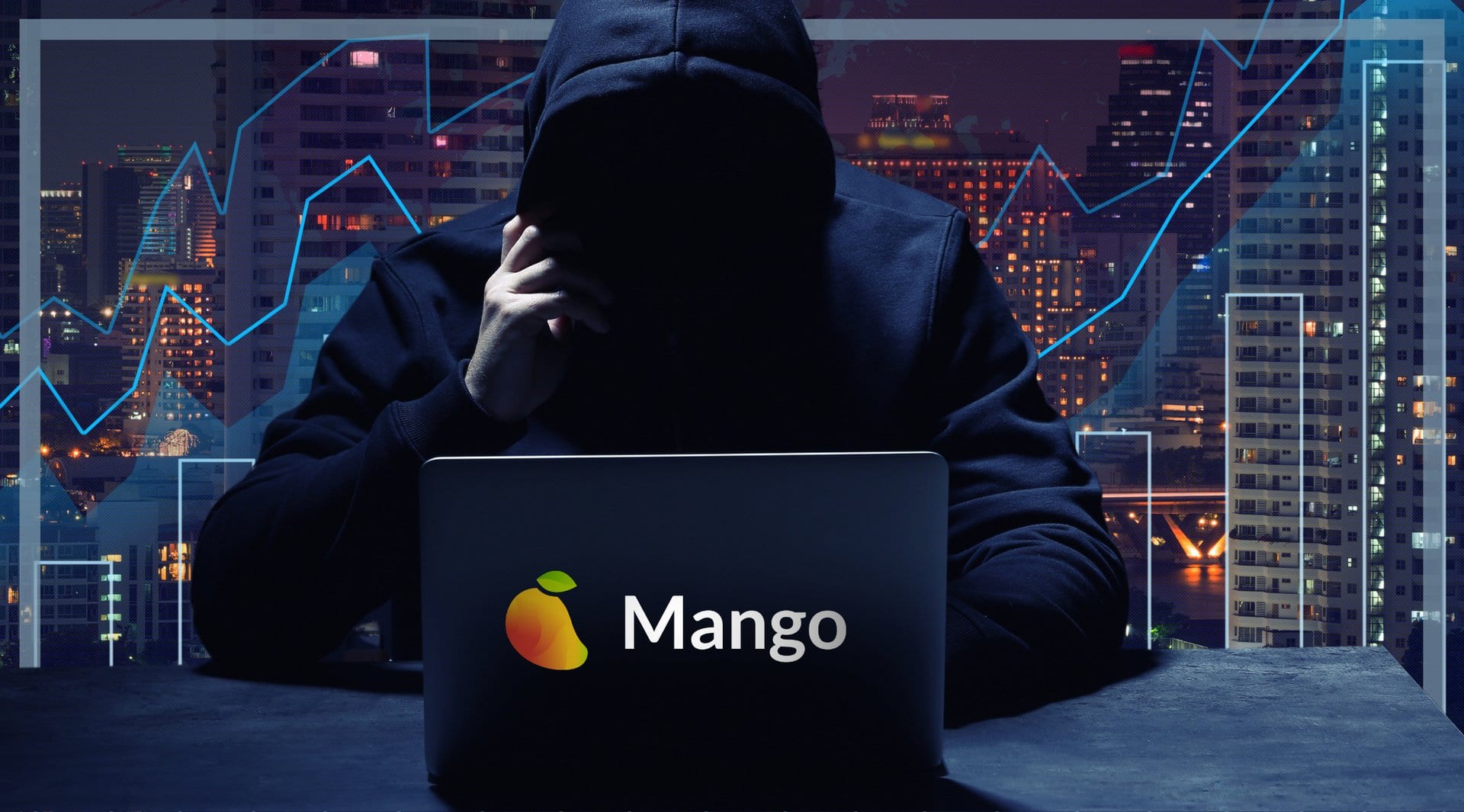Avi Eisenberg, a 28-year-old Israeli crypto millionaire, was hoping for a fellow Chad in the jury. December 26, 2022, the day the FBI nabbed him in Puerto Rico, Eisenberg retweeted another user (@noblemillions) who announced: “Trading is for coping losers. Exploiting protocols & hacking are for chads. I don’t make the rules.”
As chronicled in an earlier Disruption Banking article, Eisenberg brazenly drained $110 million from the decentralized finance protocol Mango Markets in October 2022 when he rapidly inflated the price of MNGO, the protocol’s governance token.
Eisenberg called himself an “applied game theorist,” and he crowed about his successful arbitrage trades on Substack. His X timeline gives a glimpse of his formation as a clever crypto conman on a cybercrime spree.
The SEC charged Eisenberg with market manipulation, arresting him in San Juan, a city characterized by the collision of Spanish colonial architecture and high-flying, gentrifying, tax-dodging expats like Eisenberg.
He did this with three multi-million dollar perpetual futures trades with himself, pumping up the value of MNGO 1300% in twenty minutes. As leverage, he used about ten million dollars worth of cryptocurrency. Then, he used his holdings as collateral to borrow heavily from and withdraw everything from the protocol.
The technical name for this flavor of pump and dump scheme is “oracle manipulation,” and it was a topic of interest one could observe in passing on Eisenberg’s X timeline.
“Avraham Eisenberg executed a manipulative trading scheme on a cryptocurrency exchange, defrauding the exchange and its investors out of $110 million,” said Principal Deputy Assistant Attorney General Nicole M. Argentieri, head of the Justice Department’s Criminal Division.
Eisenberg argued that he was using smart contracts the way they were meant to be used in the DeFi ecosystem.
I believe all of our actions were legal open market actions, using the protocol as designed, even if the development team did not fully anticipate all the consequences of setting parameters the way they are.
— Avraham Eisenberg (@avi_eisen) October 15, 2022
In his trial, there was more at stake than just Eisenberg’s fate because his conviction or acquittal would incentivize or deter future exploits.
If he was convicted, the future of Decentralized Finance (DeFi) would go in a different direction. If he beat the charges, it would send a message that DeFi is a place where the essential unit of measurement, the smart contract, would be more flexible and easily co-opted by malicious agents, and more susceptible to fraud.
The DeFi Ecosystem
Mango Markets is overseen by a decentralized autonomous organization or DAO, and it uses self-executing agreements called smart contracts that transfer crypto when certain conditions are met between users. Mango Markets is called a protocol because of the code that runs it, which is public, showing who owns what and enshrining the operational logic. Because Mango Markets’ code permits the type of manipulation Eisenberg carried out, it must be legal, according to the “code is law” theory.
On his Substack, Misinformation Underload, Eisenberg referred to his “Team,” repeatedly, writing, “We are focused on finding similar low risk opportunities that are scalable. If you have alpha and would like to partner, please reach out via DMs on X, Facebook, or Discord. We have the skills to execute and the capital to maximize. It doesn’t necessarily need to be in crypto, although these kind of low risk high return opportunities are probably fairly rare outside of crypto and are hard to find even in crypto.”
He never wrote about his trades on Mango Markets, although he bragged about his “extremely profitable trading strategy,” on X.
Consciousness of Guilt
The SEC argued that his actions constituted wire fraud, commodities fraud, and market manipulation. The prosecution warned the court that Eisenberg was a flight risk based on his Google searches and his flight to Israel the day after an independent journalist outed Eisenberg as the Mango Markets hacker.
While awaiting trial, he was holed up in the Metropolitan Detention Center Guaynabo, not the prison he planned for, according to his searches. In particular, he had searched stuff like, “statute of limitations market manipulation,” “when market manipulation becomes a crime,” “security at airports,” “FBI Surveillance,” and “extradition rules from Israel.”
Clearly, Eisenberg’s gut told him that there was a fair to middling chance that law enforcement would come for him. His searches were used by the prosecution as evidence of his consciousness of guilt. He also used a fake identity, paying a Ukrainian woman to use her account on Mango Markets, which suggests again his consciousness of guilt.
The U.S. attorney argued, “The more he pumped, the more he could steal… It is clear as day the defendant knew [he was committing crimes].”
Eisenberg and his lawyers painted a picture of his actions as magnanimous because, after all, he returned over half the money to the exchange, keeping $47 million as a “bug bounty” for his invaluable service and a promise that the folks at Mango Market would not cry foul to law enforcement.
The defense argued that Mango Markets was at fault for their poorly designed smart contracts. Recall that before his arrest, Eisenberg stated, “The development team did not fully anticipate all the consequences.”
Wire Fraud and the Machine
Although written into law back in 1952, The Wire Fraud Statute has nevertheless been deemed applicable to such fraud. Essentially, it is illegal to use “wire, radio or television communication in interstate or foreign commerce for the purposes of executing a scheme to defraud or to obtain money by false or fraudulent pretenses.” If that wording seems rather broad, that is by design.
The law can be traced back to 1872, as it is essentially an update of the mail fraud statute, and it is the legal version of the “Stradivarius, our Colt .45, our Louisville Slugger, our Cuisinart – and our true love,” according to U.S. Judge Jed S. Rakoff.
In Eisenberg and his lawyer’s point of view, the code is law and he did nothing wrong. “He didn’t lie to anybody,” Polsinelli PC attorney Jonathan Schmalfeld said, noting Eisenberg’s alleged fraud was carried out against an algorithm that runs Mango Markets. “He didn’t even lie to the machine.”
The defense cited Mango Market’s terms of service, which are broadly noncommital.
The defense also challenged the charges of commodities fraud, saying that the prosecution couldn’t prove that the tokens in question were commodities.
Eisenberg sang a different tune in the Fall of 2022, when he sued Sasha Ivanov, the creator of Waves blockchain protocol, over 14.5 million dollars worth of tokens Eisenberg deposited on the Waves platform.
How about you start by filing a response to the case we've been waiting on since July and returning the money you stole from me
— Avraham Eisenberg (@avi_eisen) December 26, 2022
In the lawsuit, Eisenberg accused Ivanov of refusing his attempts to withdraw the funds. Interestingly, Eisenberg argued that the digital assets he held on the platform were indeed commodities. Sasha Ivanov went on to allegedly appropriate $530 million of assets from the Waves blockchain, which has caused barely a murmur in the news media.
From all appearances, Eisenberg did not take his losses in the fight against Ivanov well, if his fate is to spend more than a decade behind bars for his actions in the proceeding six months of his star-crossed life.
During closing arguments, Eisenberg’s lawyer, Waymaker LLP’s Brian Klein, emphasized the 28-year-old’s trades were “fully compliant with Mango Markets contracts,” tapping into a theory in crypto that something is legal if a smart contract code permits it.
The Jury Deliberates
On April 18th, after one day of deliberation, jurors found Eisenberg guilty of commodities fraud, commodities manipulation, and wire fraud. Eisenberg faces twenty years in prison for wire fraud and ten years on the other charges, with sentencing set for July 29, 2024.
Eisenberg’s prosecution is the first crypto manipulation case to get a conviction, and it was closely watched by attorneys and many in the DeFi space because of its implications for smart contracts and DeFi protocols.
“Manipulative trading puts our financial markets and investors at risk. This prosecution—the first involving the manipulation of cryptocurrency through open-market trades—demonstrates the Criminal Division’s commitment to protecting U.S. financial markets and holding wrongdoers accountable, no matter what mechanism they use to commit manipulation and fraud.”
The case creates a precedent that will be used in the prosecution of all future cases involving similar pump-and-dump exploits in the DeFi ecosystem, the last frontier for crypto libertarians.
Damian Williams, U.S. Attorney for the Southern District of New York, said of the verdict: “This ground-breaking prosecution epitomizes this office’s ability to employ innovative methods and cutting-edge law enforcement tools to continue to protect all financial markets. The career prosecutors of this office continue their expertise in prosecuting financial fraud, one of our core priorities, and would-be financial criminals should think twice before daring to engage in illicit conduct on our watch.”
Many court observers expected Eisenberg to testify in his trial, which lasted eight days. In the end, Eisenberg elected not to testify, much to the disappointment of many legal practitioners.
Among them, Jessica Stansfield and Benjamin M. Bathgate, attorneys for FeirFoulds LLP, wrote: “While Eisenberg’s criminal case is noteworthy as the first time a jury deliberated on whether exploitation of smart contract code for DeFi protocols constituted fraud and market manipulation, it remains to be seen what further developments in the ‘Code is Law’ defense theory will come in future civil proceedings. In particular, there are three outstanding civil actions against Eisenberg – brought by the United States Securities and Exchange Commission, Commodity Futures Trading Commission, and Mango Labs LLC,– all of which were stayed pending conclusion of the criminal trial.”
A Legend Among Crypto Conmen
Mango Labs LLC, mentioned above, called Eisenberg a “notorious cryptocurrency market manipulator,” noting in its complaint that he has a “history of attacking multiple cryptocurrency platforms and manipulating cryptocurrency markets.” That history included a 2021 case where he embezzled (allegedly) $14 million when he was working for Fortress, a decentralized marketplace, as a developer, which may or may not have been the precious seed capital he later lost on Waves.
From all the foregoing, Eisenberg has over 39,000 followers on X as of the end of April 2024, and though many users seem to enjoy dunking on him because he got busted, Eisenberg has been an endearing and unlikely public personage to watch rise and fall, flaming out before his time.
He will be fondly remembered. Who knows, with good behavior and a few lenient parole board members, he may yet surface again someday, albeit due to his misdeeds.
Eisenberg’s heist may pave the way for more successful regulatory enforcement in the crypto ecosystem. Perhaps new laws will be written that better cover the scope of fraud as it appears in 2024. In the meantime, the DOJ will keep leaning on the most powerful law it has at its disposal to combat fraud by crypto conmen.
Author: Laird Dilorenzo
Laird Dilorenzo is a writer and researcher. No one of consequence but not to be trifled with.
The editorial team at #DisruptionBanking has taken all precautions to ensure that no persons or organizations have been adversely affected or offered any sort of financial advice in this article. This article is most definitely not financial advice.















